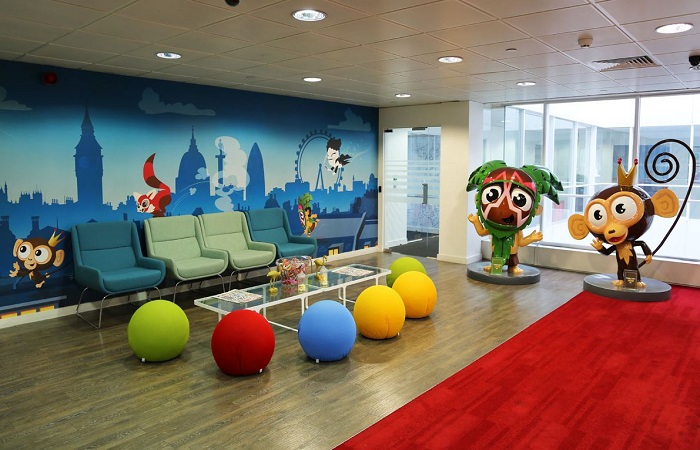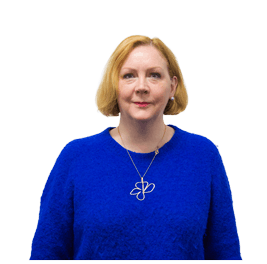
Digital gaming and gambling organisation Gamesys has invested in crafting an organisational culture and benefits focus that centres on delivering against feedback from its 1,300 global employees.
Tina Southall, director of people at Gamesys, says: “It’s the willingness to truly engage with employees, listen to what they want and try to accommodate it in the best way [we] can within [our] economic drivers. It’s about really listening, evaluating and fulfilling employee needs.”
Informing benefits strategy
One of the main methods for collecting quantitative staff feedback is via the organisation’s annual employee engagement survey, which is now in its fifth year. Conducted in May, the online survey has a dedicated benefits section and usually receives a 90% response rate. For 2018, it additionally collected 285 pages of verbatim comments from employees.
The survey results provide lucrative insights, with at least a third of Gamesys’ people strategy being directly linked to this feedback. “We take it incredibly seriously,” Southall explains. “We look at it over the course of the full year in terms of specifically completing actions that deliver against [employee feedback].”
Gamesys also collects staff feedback face-to-face. This could be through meet and greet sessions with the organisation’s founder, specifically for employees who have recently passed probation and are three to six months into their employment at Gamesys, or through roundtable lunches hosted by business directors. These lunches are held around six times a year for up to 10 employees spanning different departments.
In January 2017, Gamesys also hosted a series of targeted focus groups, aimed at employees who had been at the organisation for seven years or more. This was based on results from the annual employee engagement survey, which found that staff at this tenure were struggling with the changing organisational dynamic involved in scaling into a larger business. The focus groups aimed to discover how these employees were feeling and what Gamesys could do to help. Three or four focus groups took place, with around 20 employees in each group. The sessions found that longer-serving employees wanted to give more back to the business in terms of mentoring and ‘buddying’ initiatives.
“I’m a great believer in looking at the employee life cycle, and [in having] different interventions at different periods,” Southall says. “Dynamics change and the benefits need to change as well over that same period.”
For 2018, Southall expects to run similar targeted focus groups, this time with employees of between three and four years tenure. As this is the average length of service for Gamesys staff, Southall is hoping the sessions will shed light on how the organisation can influence retention.
“We consult [with employees] very regularly to get really close to the drumbeat of what’s going on in the business, and that guides us in where we go. We like to be flexible and adaptable to that, so my roadmap will be based six, 12 months out rather than three years out,” she says.
Personal development
For Gamesys employees, personal development and training opportunities are high on the agenda. This has been reflected in the education opportunities that Gamesys offers, which include everything from multi-day management and leadership training to two-hour masterclasses. This is supported by a large e-learning resource.
“We structure [learning and development opportunities] in such a way so that people are always on a learning pathway. That’s where we’ve put our investment energy and focus,” Southall explains.
Moving forward, Southall and her team are exploring how they might link the organisation’s learning and development offering with employees’ personal development goals. This longer-term strategy will look to use a recommendation engine system to deliver Gamesys’ mix of online content, face-to-face leadership training and masterclasses by subject experts as and when employees want it. The organisation is also looking into how to award employees more time in which to complete their self-development.
It is partly this focus on training and development that has enabled the organisation to fill 70% of its senior roles through internal promotions.
Embracing family-friendly measures
Gamesys also looks to nurture employees through its family-friendly approach, namely equalising shared parental leave and pay, to align with the organisation’s enhanced maternity policies.
In 2016, Gamesys enhanced both its maternity and paternity benefits. Maternity leave was amended to provide female employees with 10 weeks of leave at full pay, including bonuses, followed by 16 weeks of leave at half pay. Paternity leave was expanded from one to two weeks of leave, both at full pay. However, as of 2017, Gamesys enhanced its shared parental leave offering from the statutory provision to match its enhanced maternity benefit; this was to encourage more male staff to take up the benefit.
Southall says: “When we looked at it through an equality lens, we just felt that we should try and support [shared parental leave’s] core purpose from a social perspective, in terms of what it’s trying to achieve. We thought that [it] should be used appropriately as an incentive to try and encourage more dads to take time out from [the] workplace.”
Six male employees have now taken shared parental leave in the last year.
The physical environment
The Gamesys office has been crafted to be an employee benefit in itself, aligning with both the ethos the organisation wishes to promote and the social community that employees value, according to Southall.
“We’ve invested a lot in the lifestyle experience that our employees enjoy during the working day, whether that’s being able to break out and have a game of pool or table tennis, use the training or huddle zones, or just come and have a cup of coffee and their food in [a] lovely environment,” she explains. “We spend money on connecting our employees, but not in an overly structured way. We like to create this very social platform.”
Free drinks every Friday and a quarterly all-staff gathering at a local theatre are just two examples of how Gamesys lives up to its mission statement: have fun making fun. “If our employees are having fun, they’ll be able to do all the other parts of their job much better and that will retain our competitive edge,” says Southall.
Communications
Despite being a technology organisation, face-to-face communications have proven the most successful in engaging Gamesys’ employees. This culminates in a quarterly all-staff meeting in London, which is live-streamed to Gamesys’ other operating sites. The meeting, which is also available to view afterwards, is typically used as a forum for big announcements and updates. Departments also have regular meetings for more specific updates.
The face-to-face communication is supported by the staff intranet and targeted email communications.
“We find that email doesn’t work very well for communication, so face-to-face communication is by far the best,” Southall explains. “We try and make it as efficient as we can by getting as many people together as one and then backing it up with the intranet.”
The art of being Gamesys
Gamesys’ eight DNA values infiltrate both its benefits approach and its day-to-day operations. The values are: be one team, be the player, place smart bets, always learning, get stuck in, keep rolling, give a damn and be wonderfully weird.
For Southall, contributing to this unique organisational culture through her work is something she is immensely proud of. “Gamesys does a great job of creating a cultural identity [that has evolved] into something that’s admired and loved by employees, but not seen as too corporate. We tread that line constantly between trying to get a bit more disciplined and process-led, without being corporate. It’s a fine line,” she concludes.
At a glance
Gamesys is a global digital entertainment organisation that focuses on creating gaming and gambling products; these are centred around the online player experience.
The organisation has 1,300 employees across eight operating countries: Spain, Gibraltar, Malta, the US, the Czech Republic, Estonia, the UK and Austria. In the UK, around 700 employees are based at Gamesys’ London headquarters, while customer service and player relations staff are based at Stoke.
The business has a wide variety of job roles across technology, marketing, branding and customer support. The technology roles at Gamesys include software engineers, technical architects and platform developers. The organisation also hires for industry-specific jobs around gaming finance and regulatory compliance. These positions deal with areas such as anti-money laundering and responsible gaming.
Gamesys has hired employees from 51 different nationalities, with an average age of early 30s, and an average tenure of 3.7 years. Approximately 20% of the organisation’s technology roles, and 50% of those in customer service, are filled by female staff. Within the rest of the workforce, approximately 40% of employees are female.
Business objectives
- To continue to grow Gamesys’ core business.
- To continuously improve the games and propositions that Gamesys brings to market, including the resilience and speed of the user experience across different platforms.
- To innovate in gaming to produce exciting games for the organisation’s roadmap.
 Career history
Career history
Tina Southall, director of people, has been at Gamesys since April 2014. She joined the business following a career change, where she moved from a sales, marketing and strategy background into HR. Her previous job roles include Northern Europe sales director, head of content marketing and head of customer relationship management (CRM). More recently, she was appointed group diversity director at telecommunications organisation Vodafone, prior to commencing her role at Gamesys.
Since joining Gamesys, Southall has implemented an HR backbone to its organisational processes. “When I joined Gamesys, we had some weaknesses. Things like hiring and promotions were done without jobs being advertised, without [a] proper internal selection process. We didn’t have any talent management principles [and] salary reviews were fairly ad hoc. Bringing structure and process to those has helped us overall [to] reduce churn [and] increase employee engagement. Those are the things I’m most proud of in my time here so far,” she explains.
Read more…